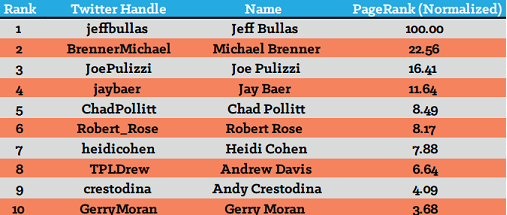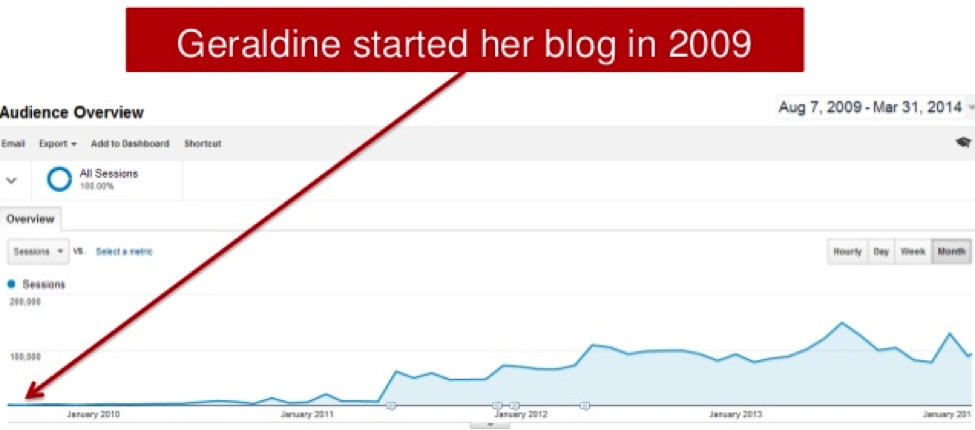 Content marketing is not just creating content, and is never successful if nobody sees it. If a blog post falls in the woods does anybody read it? Clearly, the answer is no.
Content marketing is not just creating content, and is never successful if nobody sees it. If a blog post falls in the woods does anybody read it? Clearly, the answer is no.
Even if you put long tail keywords in your posts, if you are not deeply connected to the online communities and thought leaders that care about this content, your content marketing will never be truly successful.
What is the definition of content marketing?
Content marketing is a marketing technique of creating and distributing valuable, relevant and consistent content to attract and acquire a clearly defined audience – with the objective of driving profitable customer action. -The Content Marketing Institute
Content marketing components from above broken down
- Creating
- Distributing
- Consistency
- Defined audience
- Actionable
So if you want to do it wrong, just make sure to randomly do some of the following without a content marketing strategy.
Examples of content marketing types
- Blog posts
- How to guides
- Images
- Illustrations
- Testimonials
- Case studies
- Memes
- Email newsletters
- News-jacking posts
- Videos
- Podcasts
- Ebooks
- Infographics
- Cartoons
- Storytelling
This quote nicely summarizes the shock many new content marketers have when they realize it’s not just about creating content.
Content marketing slides down from heightened expectations to disillusionment as brands begin to realize “content marketing” isn’t the same thing as merely producing content. —Frank Strong, Director of Communications, Lexis
Content Marketing Strategy
If you want to do it right, think about the different types of content you’d like to create, then come up with a defined marketing plan. This includes, at the very least, defining your audience, selecting tactics, figuring out who will develop the content, and how it will be shared.
Jay Baer offers a little inspiration on places to find content sources:
2015 will bring decentralized content creation programs with participants across the company (not just marketing), as well as content initiatives that rely on user-generated content in expanded and highly strategic ways. The best source of content in most companies may be right under your nose: your employees and customers. —Jay Baer, President, Convince & Convert
One of my favorite tactics is doing podcast interviews with thought leader employees, influential people in your industry, and customers. It doesn’t have to be hard but you have to work smarter.
Thankfully, there are a lot of great content marketing agencies and thought leaders out there that can help you learn how to do it right and save you a lot of heartache.
Below are some of my fellow thought leaders on #contentmarketing

These are from Onalytica. Check out the hashtag #contentmarketing. Better yet, retweet this post using the hashtag above.
Why content marketing fails
Rand Fishkin of Moz recently gave an awesome presentation about why most content marketing fails. Here are a few bullets that summarize his points.
- You think people will buy before they trust you over many visits
- You vomit up content without a community
- You invest in content but not its amplification (broadcast, 1:1, paid)
- You ignored SEO and being an authority
- You gave up way too soon
One example Rand gave was of his wife Geraldine’s blog that took several years to be successful. Even the wife of one of the most famous SEO’s in the world couldn’t sprinkle some magic fairy dust to make it work. Below is the screenshot of her blog’s traffic and how it grew over time. There was an inflection point where it took off, but in general you have to think of it more as a marathon than a sprint.

Conclusion
There is a lot of competition out there in the world of content marketing because traditional advertising is going through a huge upheaval. Millennials in particular are distrustful of advertising, not that most people love to be bombarded by it either.
Most of us now are comfortable with the web, and many tune out magazine ads and use DVR’s to block out TV ads. This is where content marketing steps in and says “hey, here is something useful to your exact needs from me and my brand.”
It’s no longer good enough to just jack up your content with keywords. If you want to be successful with content marketing you’ll have to start engaging your audience and building useful customer experiences.
Context specific and hyper relevant content such as location, weather, news and events, vs. just SEO and discoverability driven content, will become increasingly important.
Are you ready to go from good to great with your content marketing and have your best year ever?
